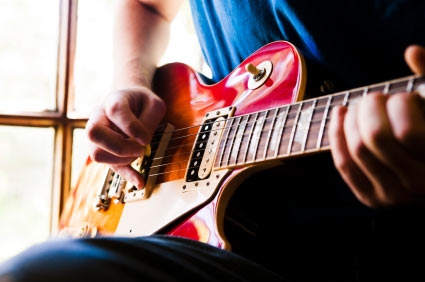Practice makes perfect. While many have tried to improve that saying, such as “perfect practice makes perfect,” or “practice makes permanent,” the general intent is all the same: it takes work to do something great. However, musician Ash Raymond stated, “Every single aspect of playing is simple. Woven into a brilliant performance, they become altogether dazzling. But even the most stunning feats consist of simple movements in understandable combinations.”
I am often asked how much a student should practice. The answer has two parts, often in direction proportion to the other: quantity and quality. The time you spend with the guitar should have focused goals to achieve maximum results.
Here are seven keys to effective practicing:
1. Develop a routine. I suggest a brief warm-up regimen with a few exercises, next I like to practice new material, review old material, and then end with free time. In the last segment, you could revisit the inspiring new material, practice improvisation, sight-read, or study music theory.
2. Use good technique. Maintain good posture, use correct hand positions, play on the fingertips right next to the fret, and use economy of motion. Cultivate a good sound with a minimum of extraneous noises (buzzes, clicks, squeaks, etc.). Really listen to your playing and ask yourself quality control questions.
3. Balance your repertoire. Choose pieces that inspire and challenge you, but are still within your ability. These pieces of music will often go through four stages: Read (explore), Remember (memorize), Refine (Polish), and Review (maintain). Strive to keep pieces in all four categories for maximum interest and results.
4. Play with feeling. Every note you play has four unique qualities: Pitch, Duration, Volume, and Tone. The amount of variation you use in each of these areas determines your musical expression and interpretation.
5. Set goals. Create a plan, focus on specific elements to accomplish, and then take action. Work hard, but work smart.
6. Solve problems. When you observe a mistake, analyze the problem, and correct it by proper repetition. Break things down into smaller components, and practice separately. Repetition is the key to learning, but you must force yourself to slow down and do it right.
7. Be creative. Vary your routine some. Invent exercises, improvise, and have fun!
J.S. Bach said that playing a musical instrument is easy—all you have to do is play the right note at the right time. When it comes down to it, that is what technique is all about: accuracy (right note) and speed (right time). Everything else has to do with the artistic expression. That is the ultimate goal of making music.



